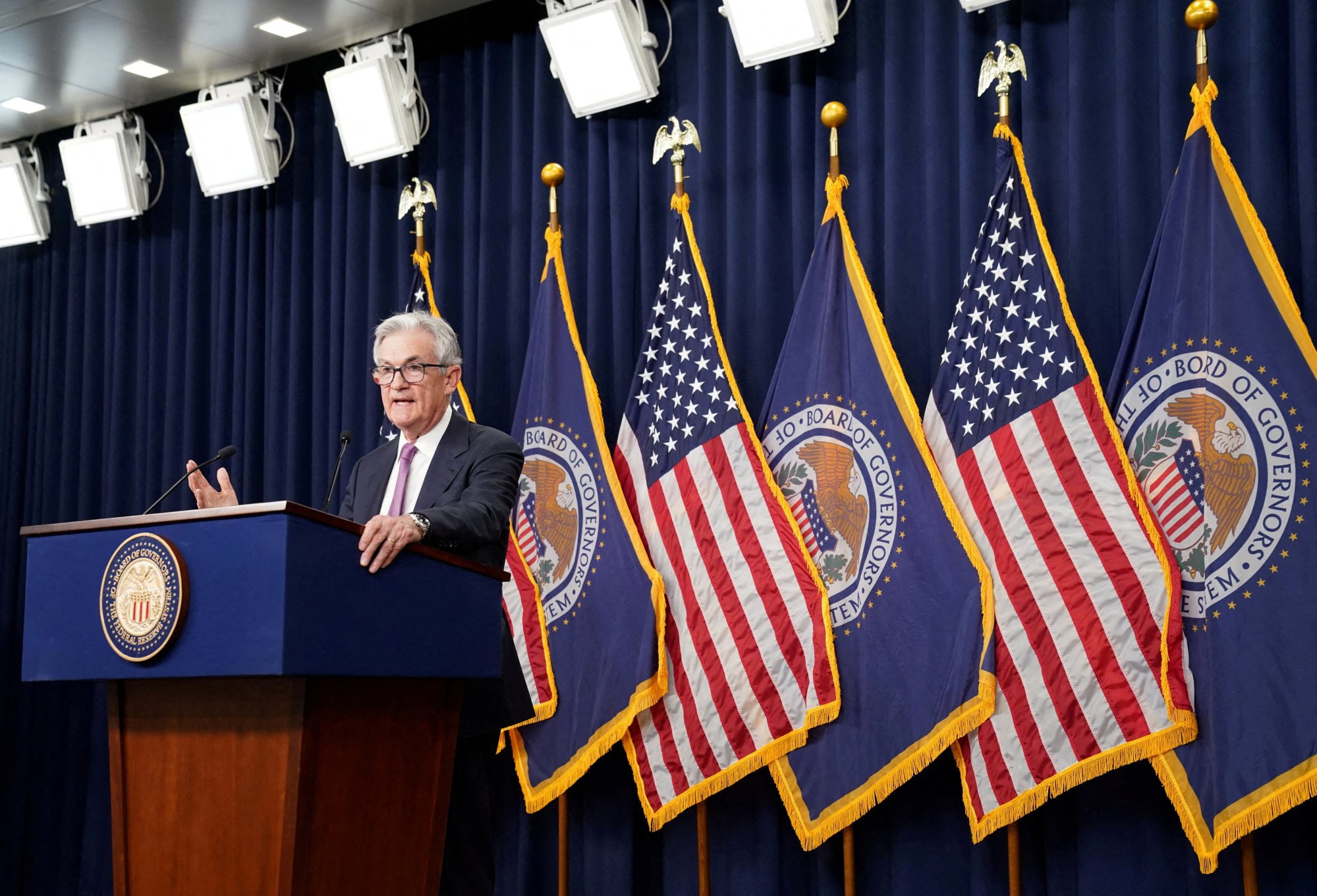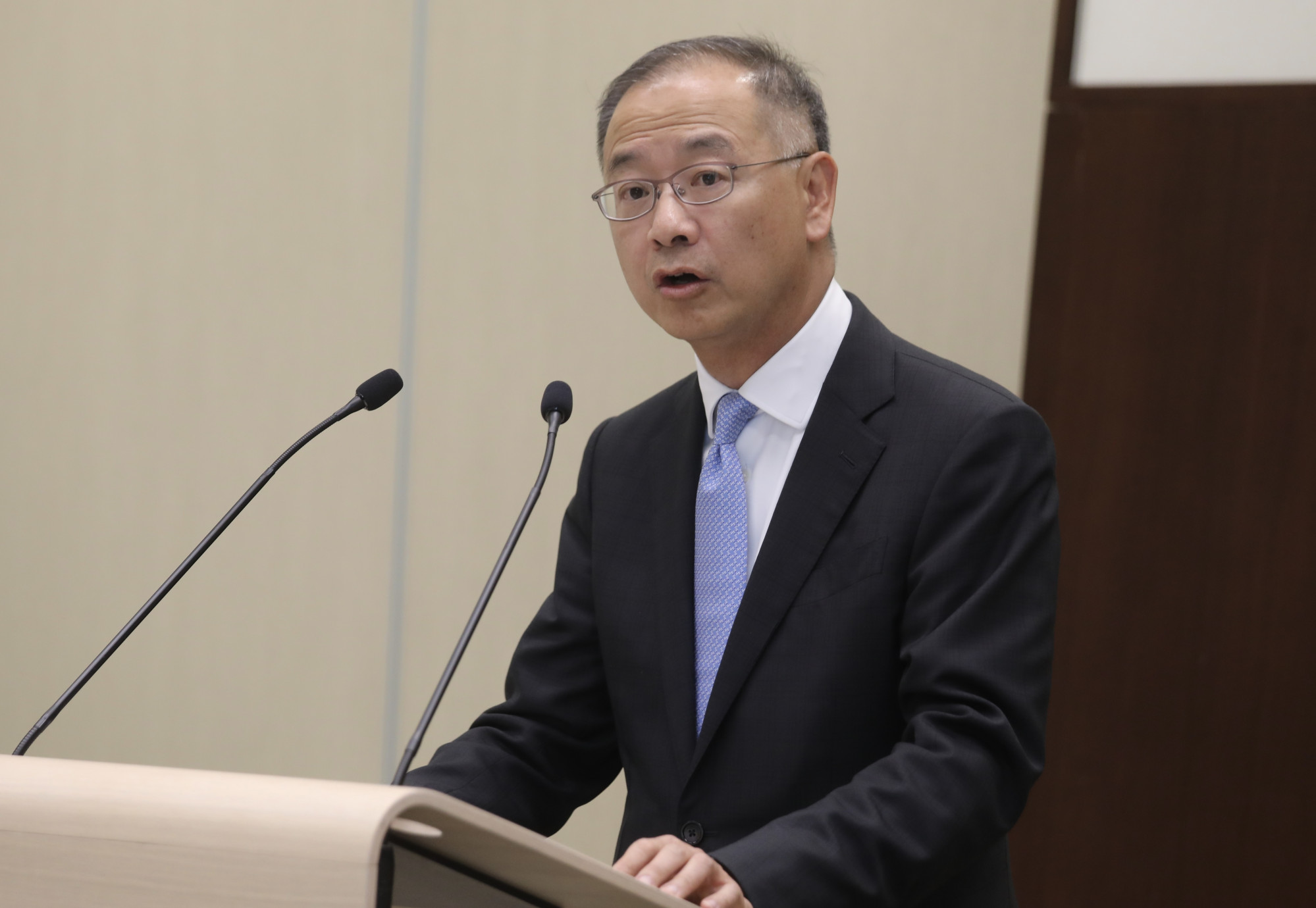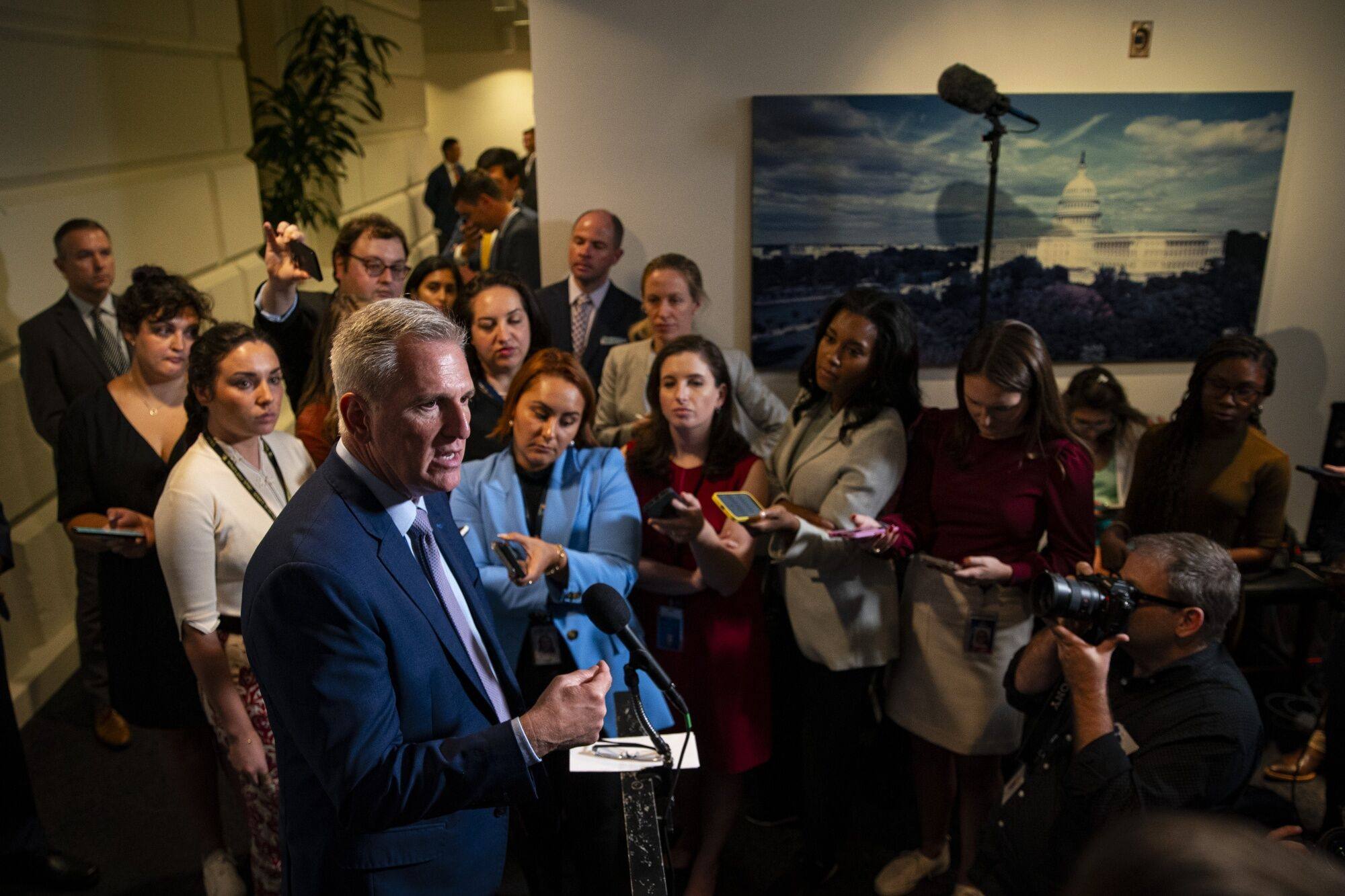[ad_1]
The so-called “hawkish skip” by the world’s most powerful central bank was expected with a 99-per cent probability, based on the prices of Fed Funds futures on the CME Group’s Chicago exchange, something that “has been the market expectation and a foregone conclusion for some time,” said T. Rowe Price’s chief US economist Blerina Uruci, in a September 19 note.

Hong Kong’s key Hang Seng Index fell 1.3 per cent to 17,655 after the interest rate decision, tracking Wall Street’s overnight retreat, where the S&P 500 dropped 1 per cent and Nasdaq fell 1.5 per cent.
Hong Kong’s most recent tightening was in July, when the base rate was raised by 25 basis points to 5.75 per cent. The base rate has risen by 5.25 percentage points in total since the Fed’s “lift-off” in March 2022. The city’s monetary policy has been run in lockstep with the Fed since 1983 to maintain the local currency’s peg to the US dollar.
The Fed’s skip came ahead of a contentious September 30 deadline to keep the US federal government open. A faction of congressional Republicans, who hold most votes in the US House of Representatives, are blocking a budget from being passed, putting the government of the world’s biggest economy at risk of a shut-down for the second time since 2018.

“We anticipate volatility in the near term, especially given the possibility of a [US] government shutdown,” said David Chao, global market strategist of Asia-Pacific (ex-Japan) at Invesco. “However, we expect markets to soon begin to discount an economic recovery to occur later in 2024 after a somewhat bumpy but brief landing. Once markets have clarity about the end of the Fed rate hike cycle and begin discounting a sustainable recovery, we expect global risk appetite to grow.”
The US federal government shut for a record 35 days from December 2018 through January 2019 during Donald Trump’s administration when Republicans held both houses of the US Congress. The shutdown cost the government US$5 billion, resulting in 380,000 lay-offs.
A 16-day shutdown in 2013 during the Obama administration resulted in 800,000 furloughs, shaving an estimated 0.6 per cent off the US economic growth pace, according to Pimco’s head of public policy Libby Cantrill.
“While markets have historically taken shutdowns in stride, this one could differ in that it collides with several other headwinds for the economy and the heretofore resilient consumer; it could last longer and there would be no economic data released or compiled,” Cantrill wrote in a note before the Fed’s announcement. “A government shutdown may have a bigger impact given the backdrop than many assume.”
HSBC, its Hang Seng Bank subsidiary and Bank of China (Hong Kong) kept their prime rates unchanged at 5.875 per cent, while Bank of East Asia maintained its prime rate at 6.125 per cent.
Hong Kong’s commercial banks have raised the cost of loans to their best customers only five times since September 2022 by a total of 0.875 percentage point. Even if they follow the “skip” this month, the prime rate may still rise later this year due to the rising cost of funding in the interbank market, said mReferral’s Chief Vice-President Eric Tso Tak-ming.
Hong Kong’s one-month interbank offered rate, or Hibor, soared to 5.24 per cent on Thursday, 75 basis points higher than a month earlier. The three-month Hibor climbed 28 basis points during the same period to 5.22 per cent.
Still ‘boring’ after 36 years: Hong Kong dollar marks peg anniversary
Still ‘boring’ after 36 years: Hong Kong dollar marks peg anniversary
“Many major banks have increased the interest rate for new mortgage loans this week,” Tso said. “The interbank rate is still very high, which will force the banks to increase their interest rates.”
Seven lenders, including Hong Kong’s three currency note issuers – HSBC, Standard Chartered Bank, and Bank of China (Hong Kong) – raised their mortgage rates for new loans by 50 basis points earlier this week. That put the effective cost of mortgages among the banks, with 80 per cent of Hong Kong’s loans, at 4.125 per cent after discounts from their prime rates.
China Construction Bank (Asia) went even further, raising the borrowing rate for its best customers by 1.5 percentage point to 5.125 per cent today, according to mReferral. The bank, with 0.3 per cent of Hong Kong’s mortgage market, did not respond to requests for comment.
Fund flows, geopolitics are Hong Kong’s ‘biggest risks’, HKMA says
Fund flows, geopolitics are Hong Kong’s ‘biggest risks’, HKMA says
Rising mortgage costs may deter property buyers, adding to the weight on a market that is struggling to cope with a supply glut. Median home prices may fall 5 per cent in the coming months, property analysts said.
HKMA weighed in with a warning to borrowers. “The public should carefully assess and manage the relevant risks when making property purchase, mortgage or other borrowing decisions,” the monetary authority said in a statement after its rate decision.
“The Fed stressed that its future interest rate decisions would continue to be dependent on the latest economic data and the impact of continual rate hikes during the past year on the economy,” HKMA said. “It is premature to conclude whether the US rate hike cycle has been completed, [so] the high interest rate environment is likely to last for some time.”

The current cycle of higher rates may be approaching an end, as US inflation continues to lose pace, with the financial markets “pricing in a 44 per cent probability of one further 25-basis point hike between now and the end of 2023,” said Franck Dimer, Allianz Global Investors’ global chief investment officer for fixed income products.
“We believe the Fed has completed its rate hike cycle,” he wrote. “Recent economic data point to continued disinflation, particularly in services and to easing labour market tensions, which are a key indicator for the Fed.”
That is good news for Hong Kong’s economy. “As businesses see the light at the end of the tunnel, the impact of further rate hikes should be tamed marginally,” said Ryan Lam Chun-wang, head of research at Shanghai Commercial Bank.
[ad_2]
Source link
